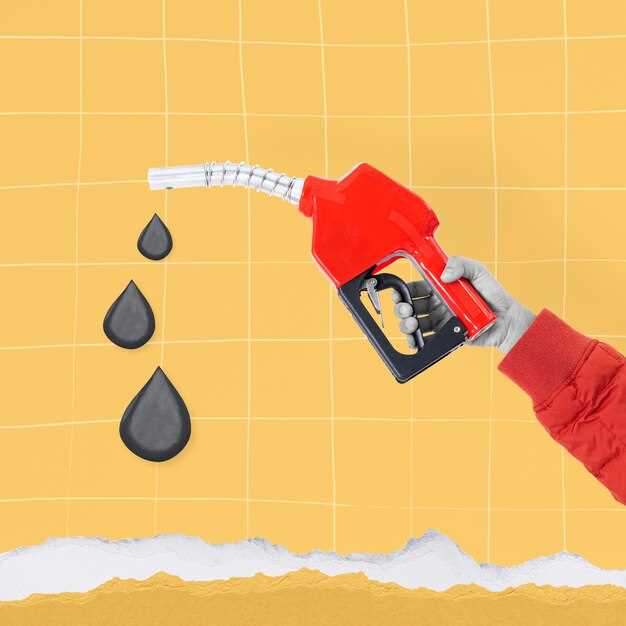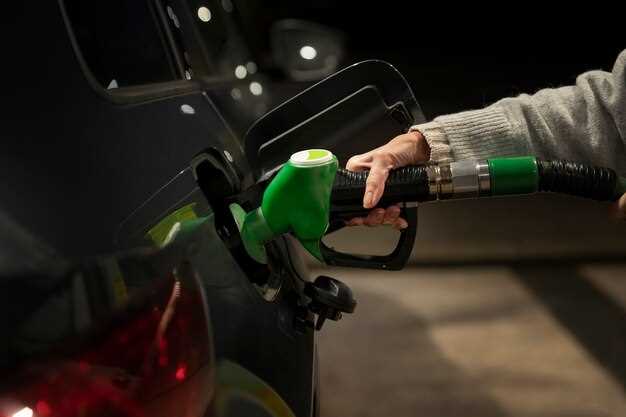
In today’s world, where fuel prices continue to rise and environmental concerns become increasingly pressing, maximizing your car’s fuel efficiency is more important than ever. Understanding how to improve your fuel mileage not only saves you money but also contributes to a more sustainable future. By implementing a few strategic practices, you can significantly enhance your vehicle’s performance and reduce your carbon footprint.
Every driver can benefit from simple adjustments to their driving habits and vehicle maintenance routines. These adjustments may seem minor, but collectively, they can lead to substantial savings at the pump. Whether you are a daily commuter or an occasional road tripper, this guide provides essential tips that are easy to incorporate into your routine.
This article will explore various methods to improve fuel efficiency, from optimizing tire pressure to adopting more efficient driving techniques. By being mindful of your car’s condition and your driving style, you can unlock the full potential of your vehicle’s fuel economy. Let’s delve into these smart tips that will help you enjoy longer drives on fewer gallons of fuel.
Regular Maintenance Checks and Their Impact on Fuel Efficiency
Regular maintenance checks are crucial for ensuring that your vehicle operates at peak performance. A well-maintained car not only runs more smoothly but also significantly improves fuel efficiency. Over time, various components can wear down or become less effective, leading to increased fuel consumption.
Engine Performance: The engine is the heart of any vehicle. Routine checks, including oil changes, coolant levels, and the condition of filters, ensure that your engine runs efficiently. A dirty air filter can restrict airflow, causing the engine to work harder and burn more fuel. Regular oil changes minimize friction and help maintain optimal engine performance, directly contributing to better fuel economy.
Tire Maintenance: Tires play a pivotal role in fuel efficiency. Properly inflated tires reduce rolling resistance, which can improve gas mileage. Under-inflated tires not only decrease fuel efficiency but also increase wear and tear. Regularly checking tire pressure and tread depth can enhance safety as well as fuel efficiency. Rotation and alignment checks can further optimize performance.
Brake System: A malfunctioning brake system can create unnecessary drag on your vehicle, leading to higher fuel consumption. Regular checks of brake pads, calipers, and fluid levels are essential for ensuring that the brakes function properly. This will not only help save fuel but will also improve safety while driving.
Fuel System Maintenance: The fuel system should be inspected periodically to ensure that fuel injectors and filters are clean and functioning correctly. A clogged fuel filter or dirty injectors can disrupt the fuel flow, leading to inefficient combustion and increased fuel use. Regular maintenance, including cleaning or replacing these components, can enhance fuel efficiency significantly.
Overall Benefits: Engaging in regular maintenance checks not only prolongs the lifespan of your vehicle but also contributes to lower fuel costs. By keeping your car in optimal condition, you can maximize your fuel mileage, reduce emissions, and ultimately save money. Scheduling routine inspections with a qualified mechanic is a small price to pay for achieving substantial savings at the pump.
Optimizing Tire Pressure for Better Fuel Consumption

Maintaining the correct tire pressure is crucial for maximizing fuel efficiency in your vehicle. Under-inflated tires increase rolling resistance, leading to higher fuel consumption. Conversely, over-inflated tires can cause uneven wear and may compromise safety. Following manufacturer recommendations, typically found in the owner’s manual or on a label inside the driver’s side door, ensures optimal performance.
To achieve the best results, check tire pressure at least once a month and before long trips. Use a reliable tire pressure gauge to measure current pressure, and adjust it according to the recommended PSI (pounds per square inch). Be sure to check tire pressure when the tires are cold, as driving heats them up and may give an inaccurate reading.
Keeping tires properly inflated not only enhances fuel efficiency but also improves handling, extends tire lifespan, and enhances overall safety. Consider investing in a tire pressure monitoring system (TPMS) for real-time alerts on tire condition. This proactive approach can help maintain the recommended pressure, ensuring that you maximize your vehicle’s fuel economy consistently.
Driving Habits That Can Enhance Fuel Economy
Adopting fuel-efficient driving habits can significantly improve your vehicle’s fuel economy. One of the most effective practices is to maintain a steady speed. Use cruise control on highways to avoid unnecessary acceleration and deceleration, which can deplete fuel reserves. Additionally, keeping your speed within the optimal range, typically between 45 and 65 mph, can reduce fuel consumption.
Another vital habit is to avoid aggressive driving. Rapid acceleration and hard braking can lower fuel efficiency by up to 33% on the highway and 5% in the city. Smooth, gradual movements not only conserve fuel but also enhance safety on the road.
Regularly checking tire pressure is essential for optimal fuel economy. Under-inflated tires can increase rolling resistance, leading to extra fuel usage. Ensure your tires are inflated to the manufacturer’s recommended levels, which can improve mileage by 3% or more.
Limit idling whenever possible. If you anticipate being stopped for more than a minute, it is generally more fuel-efficient to turn off your engine and restart it when ready to move again. This practice saves fuel and reduces emissions.
Additionally, be mindful of your vehicle’s weight and aerodynamics. Removing unnecessary items from your car, especially heavy cargo, can improve fuel efficiency. Moreover, utilizing roof racks or carriers only when needed can reduce drag and enhance fuel economy.
Lastly, plan your trips efficiently. Combining errands into one journey reduces the number of short trips that can lower fuel economy due to engine inefficiency when cold. A little planning can lead to significant savings on fuel over time.
How Air Filters Affect Engine Performance and Fuel Use
Air filters play a crucial role in maintaining engine performance and optimizing fuel efficiency. The primary function of an air filter is to prevent dust, debris, and contaminants from entering the engine’s air intake system. A clean and efficient air filter allows the engine to breathe properly, ensuring the best possible air-to-fuel mixture for combustion.
When an air filter is clogged or dirty, airflow to the engine decreases, which can lead to a rich fuel mixture. This condition forces the engine to burn more fuel to compensate for the reduced oxygen levels, resulting in lower fuel efficiency. In contrast, a clean air filter promotes better airflow, enabling optimal combustion and reducing the amount of fuel consumed.
Regular maintenance and timely replacement of air filters can enhance throttle response and improve acceleration, as the engine can quickly access the necessary air for combustion. This not only translates into better performance but also contributes to reduced emissions, making the vehicle more environmentally friendly.
Moreover, maintaining a good air filter can prevent long-term engine damage. Contaminants that bypass a dirty air filter can cause wear and tear on critical engine components, leading to costly repairs and decreased longevity. Therefore, investing in a high-quality air filter and ensuring it remains clean is beneficial for both performance and fuel economy.
In summary, air filters significantly influence engine operation. Keeping air filters clean and in good condition can lead to improved fuel efficiency, enhanced engine performance, and lower emissions, making it an essential aspect of vehicle maintenance.
The Role of Weight in Fuel Consumption and How to Reduce It
Weight significantly influences fuel efficiency in vehicles. Heavier cars require more energy for acceleration and maintaining speed, leading to increased fuel consumption. Understanding how to manage vehicle weight can help drivers improve their fuel mileage.
Here are some key points regarding the impact of weight on fuel consumption:
- Heavier vehicles exert more load on the engine, which translates to higher fuel usage.
- Every additional 100 pounds can reduce fuel economy by approximately 1-2%.
- Reduced weight improves acceleration, which can lead to lower fuel consumption during driving.
To effectively reduce your vehicle’s weight and enhance fuel efficiency, consider the following strategies:
- Remove Unnecessary Items: Regularly clear out personal belongings, tools, and any other non-essential items from your car.
- Use Lightweight Accessories: Opt for lightweight roof racks, bike carriers, and cargo carriers when necessary.
- Consider Lightweight Parts: If upgrading your vehicle, explore options for lighter wheels, batteries, and exhaust systems.
- Limit Passengers: Take fewer passengers when possible, as each person adds to the overall weight of the vehicle.
- Choose the Right Fuel: Use high-quality fuel that’s compatible with your vehicle, as it can lead to more efficient combustion and potentially lessen weight impacts.
By addressing and managing the weight of your vehicle, you can enhance fuel efficiency and save on fuel costs over time. Implement these tips regularly to maintain optimal performance and economy.
Choosing the Right Fuel and Additives for Maximum Mileage
To enhance your vehicle’s fuel efficiency, selecting the appropriate fuel is crucial. Most vehicles are designed to run on a specific type of fuel–typically regular unleaded, premium unleaded, or diesel. Always consult your owner’s manual to determine the optimal fuel grade for your car.
Premium Fuel Benefits: While many cars perform well with regular unleaded fuel, some higher-end vehicles benefit from premium fuel. Premium fuels have higher octane ratings, which can improve performance in engines designed for it. However, using premium fuel in a car that requires regular fuel does not typically result in better mileage and may not be cost-effective.
Environmental Considerations: Consider diesel fuel if your vehicle supports it. Diesel engines generally deliver higher torque and better fuel economy compared to gasoline engines. This is due to their efficiency and the energy content of diesel fuel, making them an excellent choice for long-distance driving and heavy-duty applications.
In addition to choosing the right fuel, utilizing fuel additives may enhance performance. Fuel additives can clean injectors, improve combustion efficiency, and enhance fuel stability. However, ensure that any additive is compatible with your vehicle’s engine and fuel type. Overusing additives can lead to adverse effects, including potential damage to your fuel system.
Maintaining Fuel Quality: Always use fresh fuel from reputable sources. Fuel can degrade over time, especially when stored in tanks for extended periods. Contaminated or stale fuel can result in poor performance and reduced mileage.
Monitoring Fuel Economy: Keep track of your fuel consumption patterns. Use mileage tracking apps or manual logs to assess any changes following fuel type adjustments or additive use. This data can guide future fuel choices.
Ultimately, optimal fuel selection combined with appropriate additives can significantly improve your vehicle’s efficiency, leading to enhanced fuel mileage and lower overall costs.














